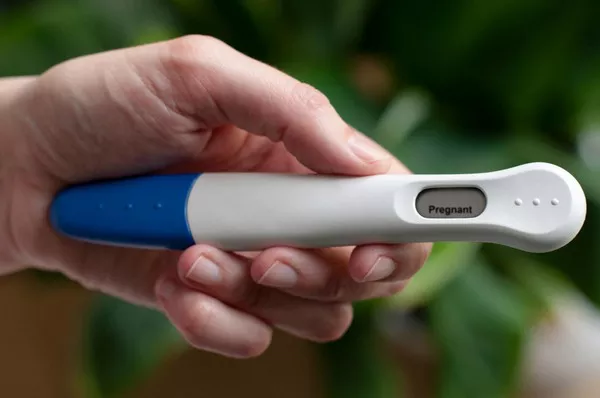Experiencing a chemical pregnancy can be emotionally challenging and physically taxing. A chemical pregnancy refers to a very early miscarriage that occurs shortly after implantation, typically before the fifth week of gestation. Many women who experience this may wonder about the implications of getting pregnant again soon afterward. This article delves into the various aspects of conceiving after a chemical pregnancy, including potential risks, physical health considerations, emotional impacts, and best practices for future pregnancies.
Chemical Pregnancy
What is a Chemical Pregnancy?
A chemical pregnancy is a term used to describe a pregnancy that ends shortly after implantation, usually before a woman even realizes she is pregnant. It is often detected by a home pregnancy test, which shows a positive result due to the presence of hCG (human chorionic gonadotropin), the hormone produced during pregnancy. However, this pregnancy typically fails before a heartbeat can be detected during an ultrasound.
Causes of Chemical Pregnancy
Chemical pregnancies can occur for various reasons, including:
Chromosomal Abnormalities: Most early pregnancy losses are due to chromosomal issues, where the embryo does not have the correct number of chromosomes.
Hormonal Imbalances: Conditions such as low progesterone can affect the ability of an embryo to implant and grow.
Uterine Abnormalities: Structural issues in the uterus can prevent successful implantation or development.
Environmental Factors: Factors such as stress, smoking, or substance use can also impact early pregnancy outcomes.
Symptoms of a Chemical Pregnancy
Symptoms of a chemical pregnancy can vary, but common indicators include:
A positive home pregnancy test followed by bleeding
Cramping or discomfort similar to a menstrual cycle
A decrease in pregnancy hormone levels, as confirmed by blood tests
Emotional Impact of a Chemical Pregnancy
Grieving the Loss
Experiencing a chemical pregnancy can lead to feelings of loss and grief. Many women feel a sense of disappointment, particularly if they were excited about the prospect of pregnancy. It’s important to recognize these feelings as valid and to take time to grieve.
Impact on Future Pregnancies
The emotional impact of a chemical pregnancy can linger, affecting future attempts at conception. Women may feel anxiety or fear about trying again, worrying about the possibility of experiencing another loss.
Getting Pregnant After a Chemical Pregnancy
Timing Considerations
One common question among women who have experienced a chemical pregnancy is, “How soon can I get pregnant again?” While there is no definitive medical guideline that mandates a waiting period, most healthcare providers suggest waiting for at least one menstrual cycle. This allows your body time to heal and for hormone levels to stabilize.
Potential Risks of Immediate Pregnancy
Physical Health: Conceiving immediately after a chemical pregnancy may pose physical risks, particularly if the body has not fully recovered. This can include hormonal imbalances that may impact the viability of a new pregnancy.
Emotional Readiness: If a woman has not had time to process her emotions surrounding the chemical pregnancy, she may not be mentally or emotionally prepared for another pregnancy. This can lead to increased anxiety and stress, potentially impacting the new pregnancy.
Pregnancy Complications: While there is limited research specifically addressing the risks of immediate pregnancies post-chemical pregnancy, some studies suggest that very early subsequent pregnancies may have a slightly increased risk of complications.
The Benefits of Waiting
Physical Recovery: Allowing time for your body to heal can improve overall health and make future pregnancies more likely to succeed.
Emotional Healing: Taking time to process your feelings can help you approach a new pregnancy with a more positive mindset, reducing anxiety and stress.
Tracking Ovulation: Waiting for a full menstrual cycle can help you track your ovulation more effectively, increasing your chances of conceiving.
Preparing for a Healthy Pregnancy
Preconception Care
If you decide to try to conceive after a chemical pregnancy, consider the following preconception care tips:
Consult Your Healthcare Provider: Schedule a preconception visit to discuss your health history and any concerns you may have. Your provider can offer personalized advice and help ensure you are in optimal health.
Folic Acid Supplementation: Begin taking folic acid before conception to reduce the risk of neural tube defects in a future pregnancy.
Healthy Lifestyle Choices: Focus on maintaining a balanced diet, regular exercise, and adequate sleep. Avoid alcohol, smoking, and recreational drugs.
Manage Stress: Consider stress-reducing techniques, such as yoga, meditation, or therapy, to improve emotional well-being.
Monitoring Your Cycle
Tracking your menstrual cycle and ovulation can help you determine the best time to conceive. Use methods such as:
Ovulation Kits: These can help identify your fertile window.
Basal Body Temperature: Tracking your temperature daily can provide insights into ovulation.
Cycle Apps: Many apps can help track your cycle and predict ovulation.
Signs of a Healthy Pregnancy
Early Pregnancy Signs
If you do conceive after a chemical pregnancy, be aware of the early signs of a healthy pregnancy, which may include:
A missed period
Morning sickness
Breast tenderness
Fatigue
When to Seek Medical Advice
Contact your healthcare provider if you experience any of the following during a new pregnancy:
Severe cramping or bleeding
Persistent pain or discomfort
Symptoms of an ectopic pregnancy (e.g., sharp pain, dizziness)
See Also: Chemical Pregnancy: What to Do & What You Should Know
Conclusion
Getting pregnant immediately after a chemical pregnancy can bring up many concerns, both physically and emotionally. While many women can conceive successfully without waiting, allowing time for your body and mind to heal can lead to a more positive experience in future pregnancies. Consulting with healthcare providers and engaging in preconception care can help mitigate potential risks and increase the chances of a healthy pregnancy. Remember, every individual’s journey is unique, and taking the time to understand your body and emotions is vital for reproductive health.

